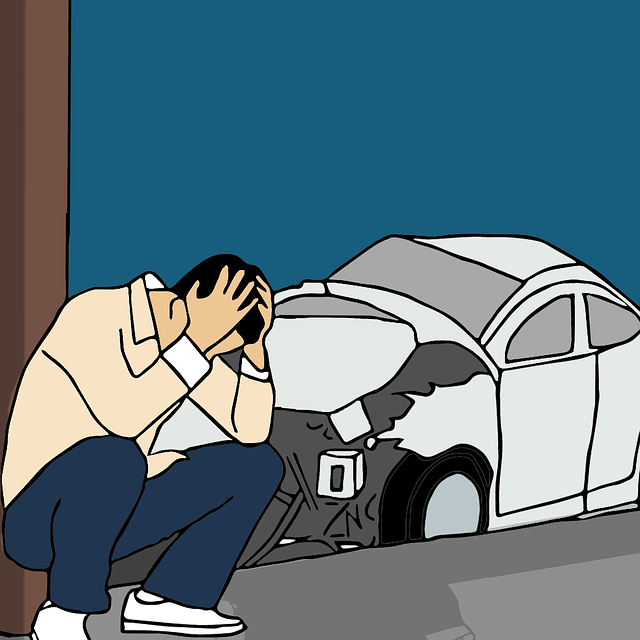Understanding and adhering to the personal injury statute of limitations (often 1-3 years) is crucial for filing lawsuits seeking compensation. Exceeding this deadline bars individuals from justice. Prompt action involves consulting legal specialists who navigate complexities, especially in employment disputes. Medical records are key evidence, connecting incident to medical consequences. Timely legal action ensures fair compensation for physical, emotional suffering, and associated medical expenses, with qualified attorneys improving outcomes and protecting rights in car accidents and product liability cases.
In personal injury cases, understanding the statue of limitations is crucial for successful claims and optimal compensation recovery. This article guides you through the intricacies of the personal injury statute of limitations, focusing on medical records as essential evidence in time-sensitive cases. Learn how to navigate legal deadlines effectively, ensuring your rights are protected. Key topics include: “Understanding Statute of Limitations for Personal Injury Claims” and “Navigating Legal Deadlines.”
- Understanding Statute of Limitations for Personal Injury Claims
- Medical Records: Essential Evidence in Time-Sensitive Cases
- Navigating Legal Deadlines for Optimal Compensation Recovery
Understanding Statute of Limitations for Personal Injury Claims

Understanding the statute of limitations for personal injury claims is crucial when considering medical compensation. This legal time frame varies by jurisdiction but generally sets a limit on how long individuals have to file a lawsuit after an accident or injury. For instance, in many cases, victims have one to three years from the date of the incident to initiate legal proceedings. Exceeding this deadline can result in forever losing the right to seek justice and financial redress for auto accident injuries, nursing home neglect, or other forms of personal harm.
Knowing these limits is especially important when dealing with medical claims, as delays in filing can hinder access to care and compensation. In terms of personal injury statute of limitations, prompt action is key. Victims should consult legal experts who specialize in such matters, as they can navigate the complexities of employment disputes or other scenarios that may extend or reset these deadlines, ensuring individuals affected by unforeseen events receive the support and justice they deserve.
Medical Records: Essential Evidence in Time-Sensitive Cases

In personal injury cases, especially those involving complex medical claims, evidence is paramount to achieving justice. Medical records stand out as essential pieces of proof in navigating the intricate web of personal injury statute of limitations. These detailed documents offer a comprehensive overview of an individual’s health history, including diagnoses, treatments, and prognoses, which can significantly impact the outcome of a case. They serve as a tangible link between the incident causing the injury and its subsequent medical consequences, making them crucial in building a compelling argument for truck accident settlements or slip and fall injuries.
Attorneys rely on these records to substantiate claims, especially when dealing with time-sensitive matters like motor vehicle accidents. Accurate documentation ensures that every aspect of the plaintiff’s injury is accounted for, helping to secure fair medical claim compensation. Effective use of medical records by a qualified motor vehicle accident attorney can greatly enhance the chances of a successful case, ensuring that victims receive the support and reimbursement they deserve within the specified legal time frame.
Navigating Legal Deadlines for Optimal Compensation Recovery

Navigating Legal Deadlines for Optimal Compensation Recovery
When it comes to personal injury claims, understanding and adhering to the personal injury statute of limitations is paramount. This legal deadline dictates the time frame within which an injured party can file a lawsuit to seek compensation for their damages. Failure to initiate legal proceedings before this deadline expires may result in a permanent loss of the right to pursue a claim. In the case of medical negligence or nursing home neglect, where the injuries might not be immediately apparent, it’s crucial to act swiftly once the harm is recognized. A timely filing can ensure that victims receive the full compensation they deserve for their physical and emotional suffering, as well as associated medical expenses.
For individuals involved in car accidents or dealing with product liability issues, engaging a qualified car accident attorney early on can significantly enhance their chances of a favorable outcome. Legal professionals specializing in personal injury cases understand the intricacies of these statutes and can guide clients through the process, ensuring all necessary steps are taken within the prescribed time frame. This proactive approach is essential to protect one’s rights and maximize potential settlements, whether it involves negotiating with insurance companies or pursuing a product liability settlement.
Understanding and navigating the personal injury statute of limitations is crucial for individuals seeking compensation through medical claims. By familiarizing themselves with the time frames involved, claimants can ensure they present evidence, like medical records, promptly to avoid legal barriers. Timely action not only maximizes compensation potential but also guarantees the best outcome in a often complex and time-sensitive process.






